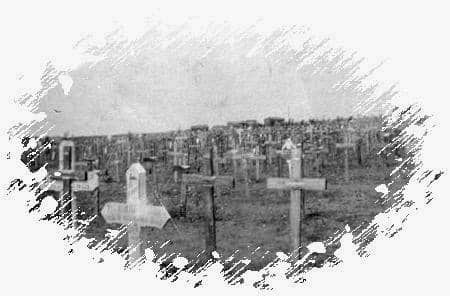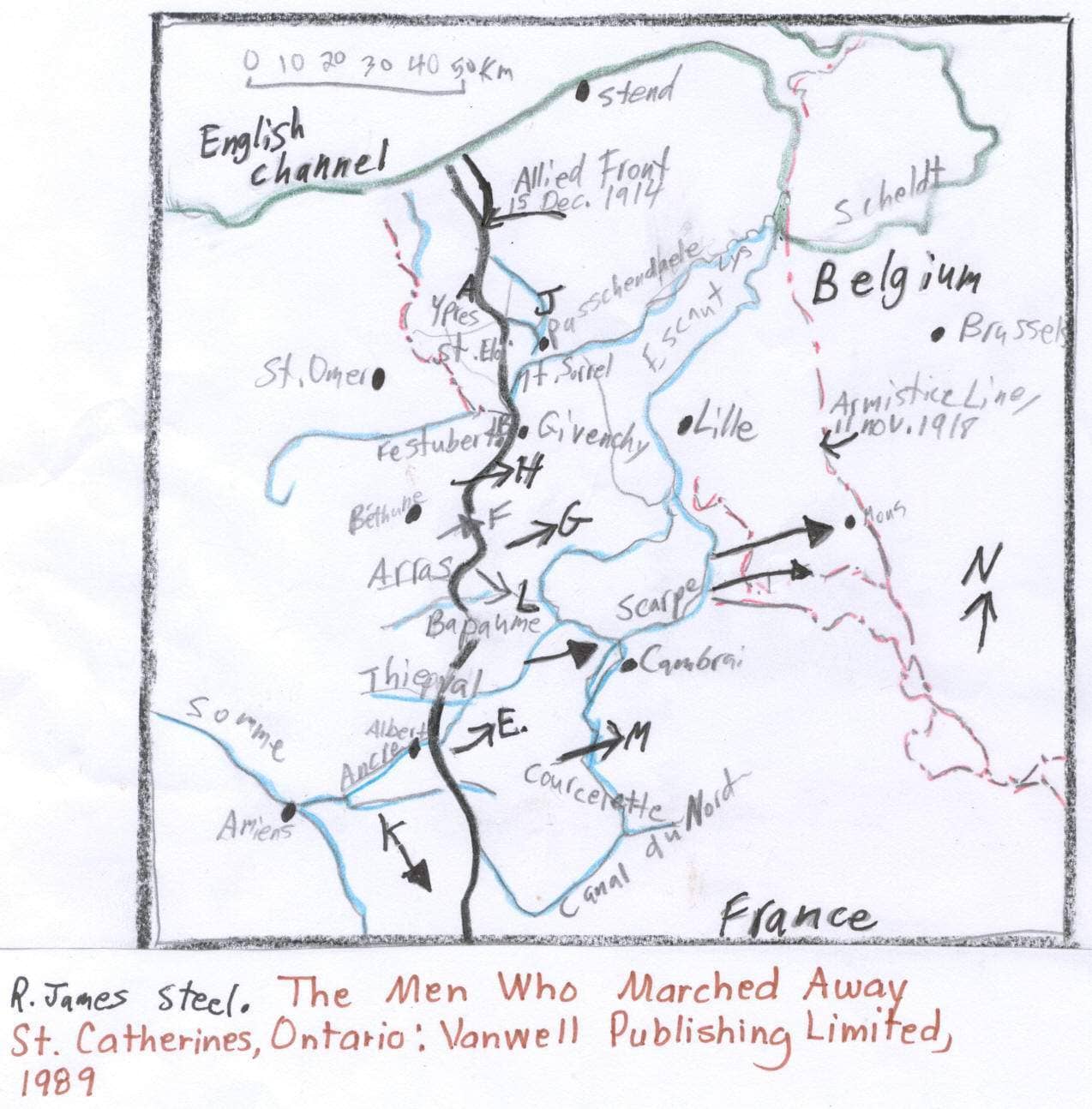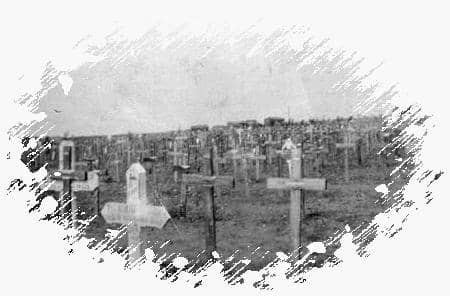

ABOUT FLANDERS
Have you ever wondered where Flanders Field is, or why it's so important? On this web page I will tell you about where Flanders field is, some interesting facts about it, and I will also share some stories I found about it. I hope that you enjoy my web site!
Flanders Field was a place in Belgium where many World War One battles occured. It all started out when Germany wanted to take over the land in Belgium. They occupied most of Belgium except for the Flanders area. The allies (the British and French) went to war to protect this area. They didn't want the Germans to take it over. A bloodly war called World War One started in August of 1914. Most of the time the people fought from the trenches. It was muddy, full of rats and there was often water up to the soldier's knees. It was very cold, crowded with little light so the soldiers couldn't even write there. In the trenches their was no light, it was cold, and very crowded.
The Canadians started helping the British fight the war in 1915. The German's took over almost all of Belgium, except for one spot called Flanders. In 1915 the German's started using poisonous gas in their battles, which had a big affect to the Allies. The Allies' soldiers were not able to breath when the gas started to fall. The Battle of Ypres was the first battle that used gas. Many people got shot and some even sank into the mud and couldn't get away. After this battle was over, this area became a grave yard. More than 60,000 Canadian died for their country and for our freedom. To this day we still remember all these people and what they did for their country.
In 1915, a Canadian soldier named Doctor John McCrae wrote a poem called "In Flanders Fields'. He wrote it after he had buried some of his best friends after a bloody battle. It describes what he saw and how he felt. He died in France on 28 January, 1918, after four years of working as a doctor on the Western Front.
This is a really interesting story I found, After the cemetery was discovered all the people that had died during the war of Ypres when the ceremony was going on one red paper poppy was dropped for each British soldier. They were all dropped from the top of the gate. At the rate of about 2,500 per second, it took five minutes for all of the poppies to fall. Now we remember all of these people for what they did for people like you and me, and to this day we will remember all the people that died. The poppy was chosen as the flower to represent the war because poppies are the only flower that will grow in rooted up soil. Their seeds can lie on the ground for many years and still grow. That is just like the soldiers who died on the ground at Flanders Fields. Almost ninety years later, their bravery lives one and flowers among this generation of people.

KEY
| A The Battles of
Ypres, April to May 1915
B The actions at Festubert and Givenchy May to June 1915 C The St Eloi Craters, March-April 1916 D The Battle of Mount Sorrel, 2-13 June 1916 E The Battles of the Somme, September, October, November 1916 F The Battle of Vimy Ridge, 9-12 April 1917 G The Battles of the Scarpe, April-May 1917 H The Capture of Hill 70, 15-25 August 19 |
J The Battle of Passchendaele 26 October-10
November 1917
K The Battle of Amiens, 8-11 August 1918 L The Battle of Arras, 26 August-3 September 1918 M The Canal du Nord and Cambral, 27 September- 11 October 1918 N The Capture of Valenciennes, 1-2 November 1918 O The Final Advance, 3-11 November 1918 |
In Flanders fields the poppies blow
Between the crosses, row on row,
That mark our place; and in the sky
The larks, still bravely singing, fly
Scarce heard amid the guns below.
We are the Dead. Short days ago
We lived, felt dawn, saw sunset glow,
Loved, and were loved, and now we lie
In Flanders fields.
Take up our quarrel with the foe:
To you from failing hands we throw
The torch; be yours to hold it high.
If ye break faith with us who die
We shall not sleep, though poppies grow
In Flanders fields.
by John McCrae
USED FOR MY FLANDERS PROJECT
Patterson, Michael,2003. Arlington National Cemetery website [internet]
http://www.arlingtoncemetery.com/flanders.htm [retrieved 17 March, 2003]
Ruggenberg, Rob. In Flanders Fields [internet] http://www.geocities.com/SoHo/Gallery/8054/poppies.html [retrieved 17 March, 2003]
Terriero, Otto,2002. WW2 Network [internet] www.ww2n.com/iff.shtml [retrieved 17 March, 2003]
Sole, Thomas. ABMC Cemeteries [internet] www.abmc.gov/abmc2.htm [retrieved 17 March,2003]
Norm, Christie, 1999. The Canadians at Ypres [book] CEF books. Ottawa, Ontario.
Steel, RJ, 1985. Gas! The Battle of Ypres [book] Vanwell Publishing Limited. Canada.
![]()
THIS WEB PAGE WAS CREATED BY:
ROCHELLE
